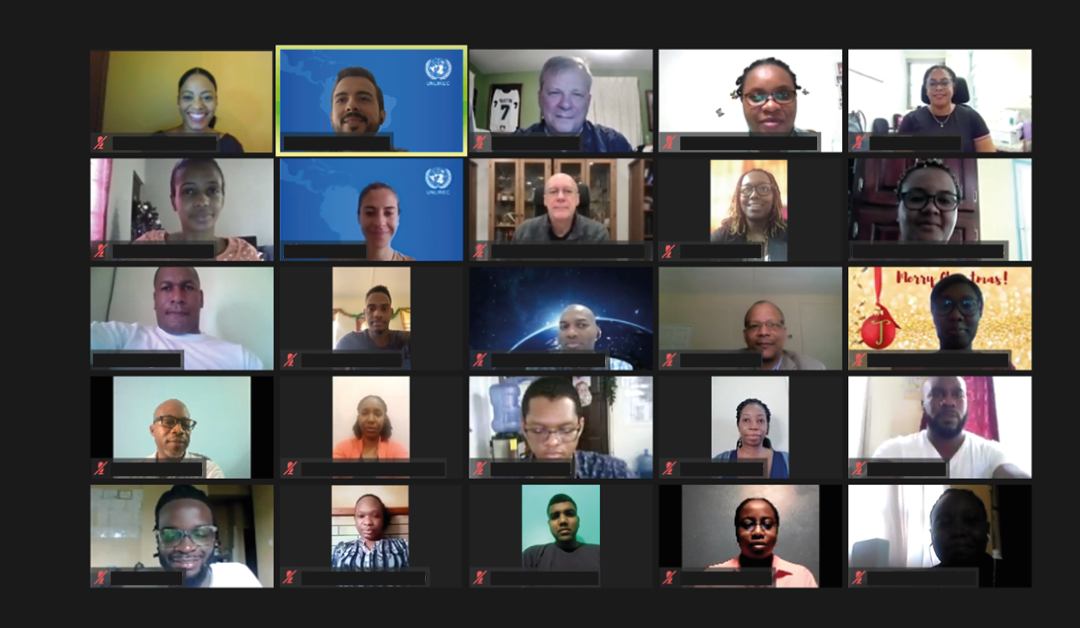On 7 December 2021, the United Nations Regional Centre for Peace, Disarmament and Development in Latin America and the Caribbean (UNLIREC), hosted a regional webinar on Privately Made Firearms and Implications for Forensic Analysis with 10 CARICOM States. The purpose of the webinar was to discuss how to obtain forensic data from privately made firearms, also known as ‘ghost guns’, using toolmark examination and the potential value of comparing toolmarks with recovered tools for investigative purposes.
‘Ghost guns’ refers to unregulated and untraceable firearms that are built by unassembled and partially manufactured parts. Although illicitly manufactured firearms are not a prevalent phenomenon in the Caribbean, as it is in North America and Europe, several countries in the region have reported seizures of these firearms in the past years. Such seizures signal an alarming trend that may increase the levels of armed violence in Caribbean countries if not prevented.
A total of 68 national officials, including 27 women, from ministries of National Security and Home Affairs, Police Forces, Defence Forces, Forensic Labs and Customs Departments of Antigua and Barbuda, Barbados, Bahamas, Belize, Guyana, Jamaica, Saint Kitts and Nevis, Saint Lucia, Suriname and Trinidad and Tobago participated in the regional webinar.
UNLIREC presented on various tool operating processes and how resulting toolmarks may appear on illicitly fabricated or converted firearms. It also highlighted how the comparison and identification of toolmarks can provide firearms investigators with information concerning the type and size of tools used to fabricate weapons. In addition, the participants discussed the value of creating a database for privately made firearms recovered in the region to facilitate information sharing among forensic labs and investigators, recognize firearms, trace recovered cartridge cases and prove links between cases. Such a database would include the toolmarks on firearms, the type of tools used to make them, high definition photographs of these marks and the type of firearms recovered.
This webinar, carried out in line with the 2001 UN Porgramme of Action on Small Arms and Sustainable Development Goal 16.4, contributes towards the implementation of Goal 3 of the Caribbean Firearms Roadmap: “Bolster law enforcement capacity to combat illicit firearms and ammunition trafficking and their illicit possession and misuse”.
The Regional Webinar on Privately Made Firearms and Implications for Forensic Analysis was generously sponsored by Canada. It followed another regional webinar on Combatting “ghost guns” on 15 November 2021 and is part of a series of regional thematic webinars organized and delivered by UNLIREC to prevent and combat crime gun and illicit trafficking in the region.
UNLIREC, as the regional organ of the UN Office for Disarmament, seeks to advance the cause of practical disarmament in Latin America and the Caribbean as part of its commitment to support Member States in their implementation of international disarmament and non-proliferation instruments, in particular, the 2001 UN Programme of Action on Small Arms.

